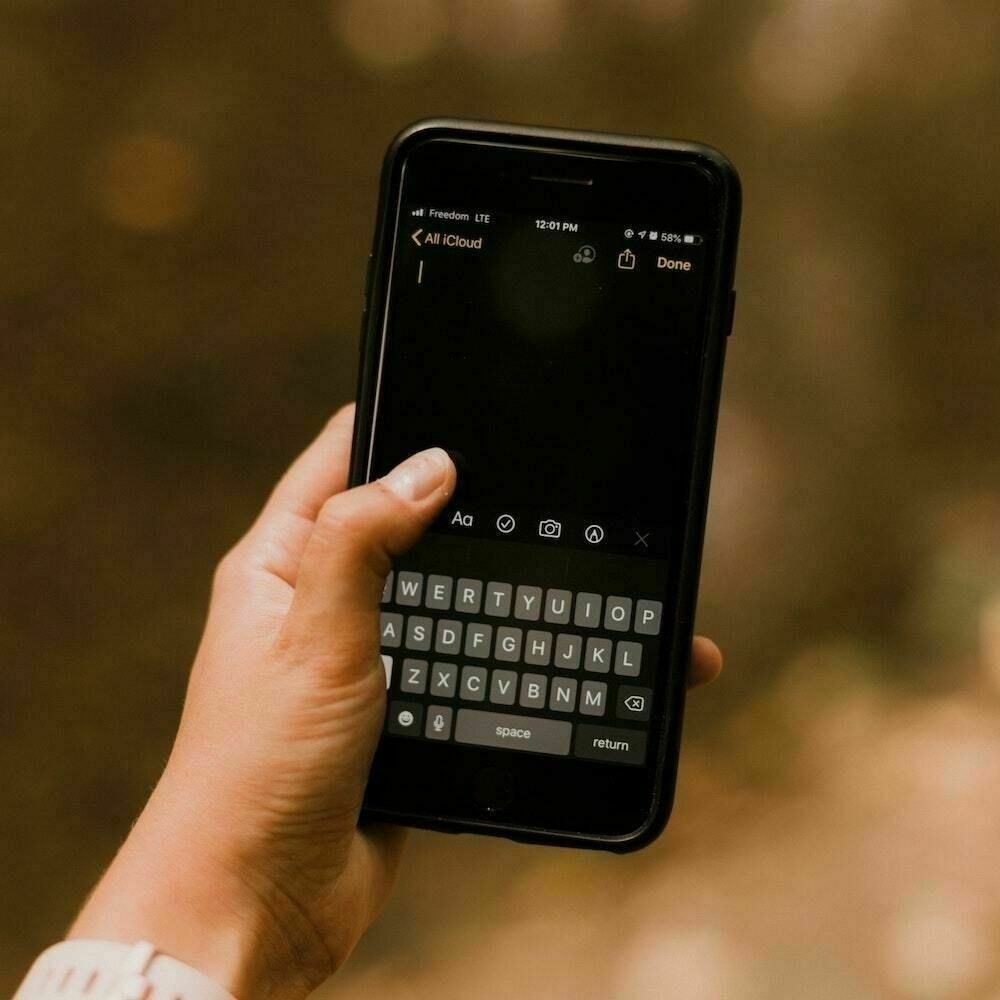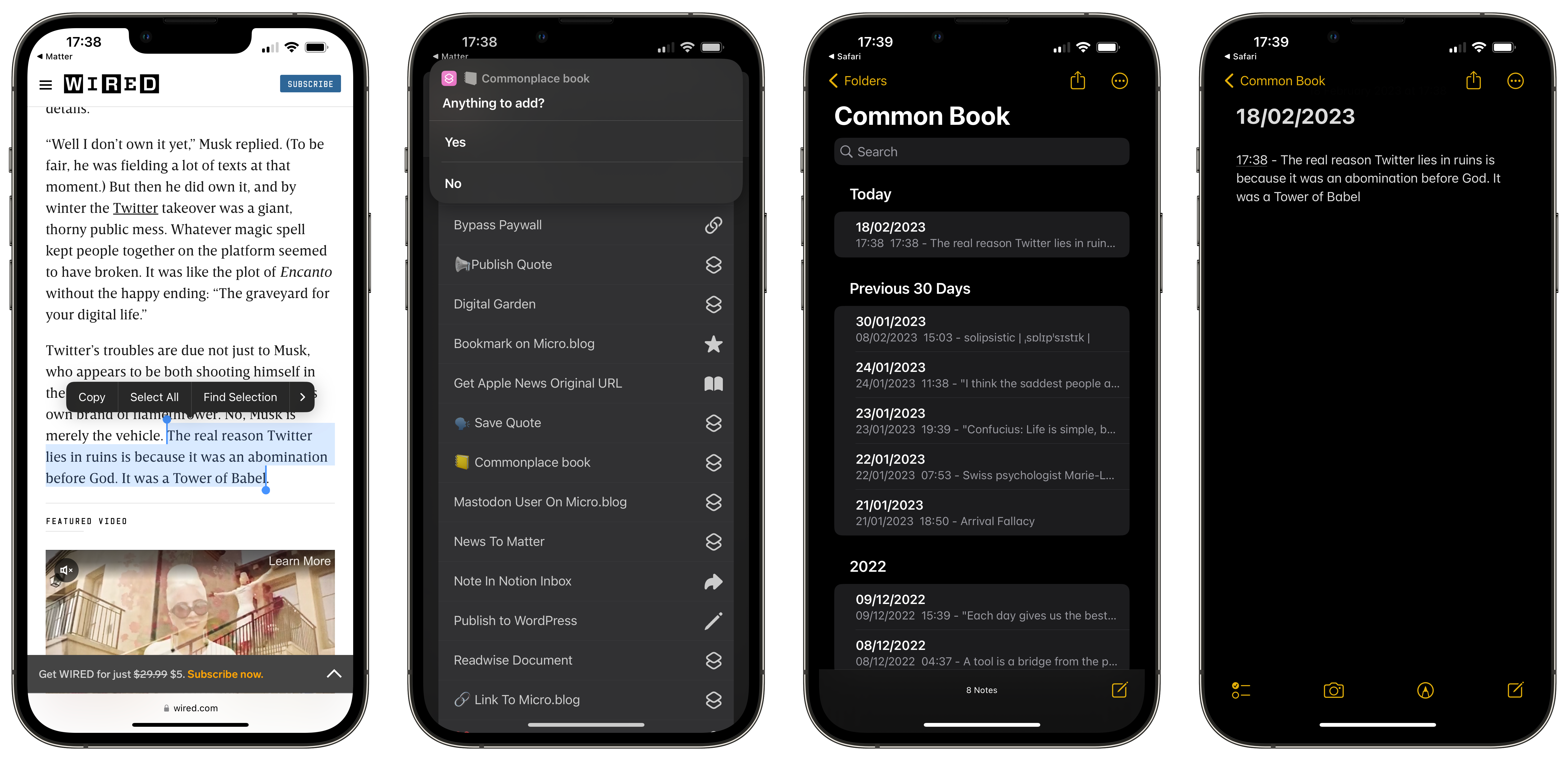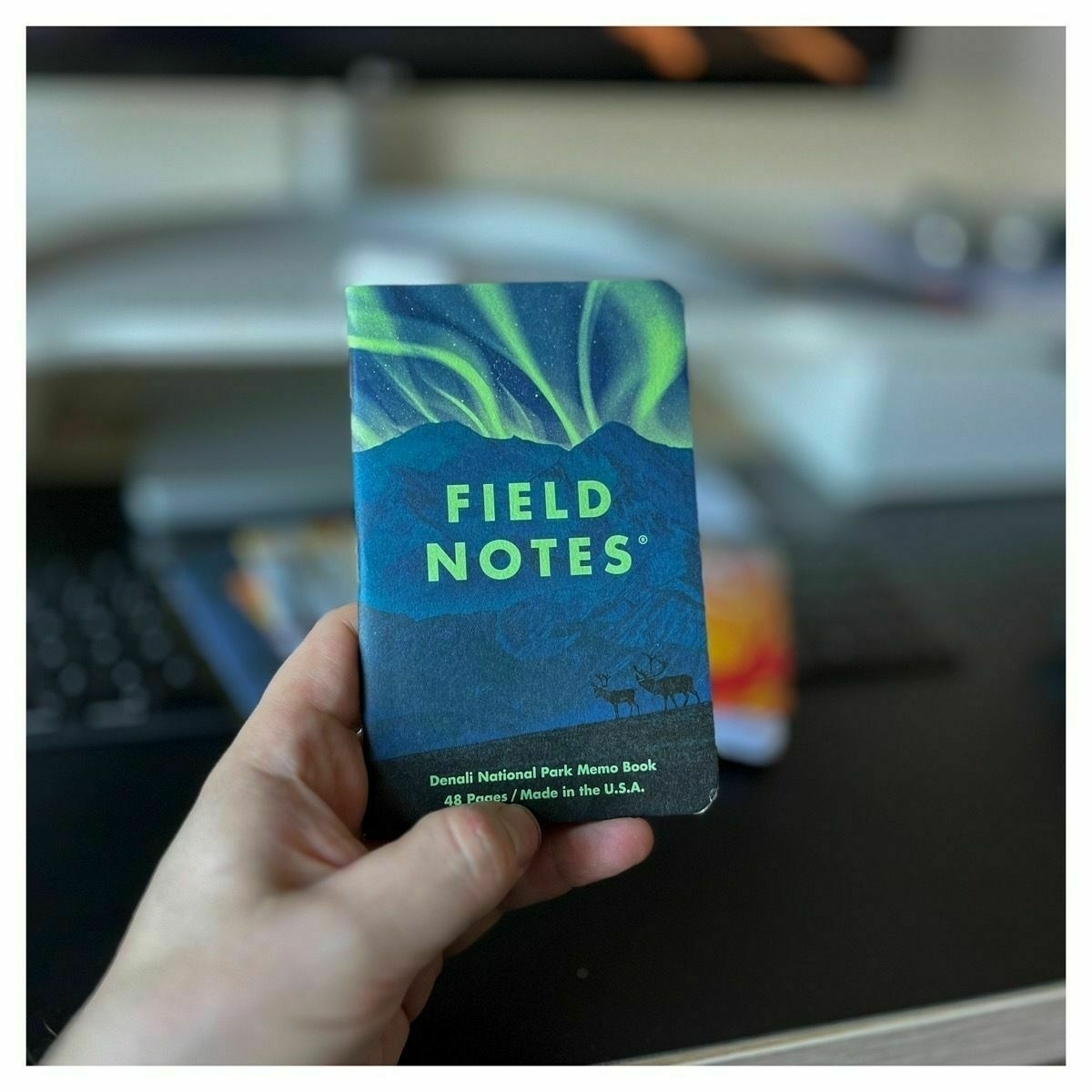Stray too far into self-help or productivity circles, and you will soon come across this idea of a commonplace book. The practice of writing everything down and keeping it in a place you can access later is held up as the reason people are successful and a way for you to get the most out of life. Although people like HP Lovecraft, John Milton and even Leonardo do Vinci kept one by their side, it is a practice that can be hard to stick too in the modern world.
Commonplace books are a tradition spanning from the Middle Ages, but one that seems improper in the modern world. Despite all the obvious benefits of manual tasks, the avoidance of feeling out of place is often a powerful feeling. One that I frequently can’t be overcome, I just don’t want to be that guy. There’s just no getting around the fact that carrying around a notebook in a digital world appears strange to most people.
As such, my first effort at keeping this ‘book’ had to be digital. It makes the most sense as I have my phone or my watch on my wrist nearly all the time, or I am sat at my computer working. Not to mention, all the things I save are then searchable and referenceable easily from all my devices. Saving digital things just makes sense.
An app such as Evernote would make an excellent digital commonplace book, in fact, numerous people I know have been doing this all along without even knowing it. Storing photos of notes, whiteboards, web clippings, meeting briefs and all sorts of things in the app to refer to later. Not wanting to spend money on Evernote after being burnt before, I opted to use Apple Notes instead.
The main reason for doing this was to make sure I carried things that I wanted to remember. That I got myself into a better state of working though my ideas and working on them later. So, I built a Shortcut to help me on this journey. To capture quotes from articles I read, thoughts that I could dictate from my Apple Watch, and also anything else I stumbled across.
The premise was simple. My iCloud notes now contained a folder titled commonplace book. Each time I wanted to capture something, the shortcut checked for a note titled with the current date, if it was missing, it created it along with a time stamped entry. If the note already existed, it appended a time stamped capture to the note.
This folder started to fill up with all sorts of things. Quotes, ideas, web clippings, photos and any number of random things. I became quite obsessed with saving things, but I am sure you can already see where this was going. I was absolutely dedicated to saving things in my new commonplace book, but I never went back and looked at it. Never browsed the notes for any other reason than vaguely remembering saving a quote I wanted to reference in some writing.
The digital folder was a great idea, but it was tucked away. It wasn’t in front of me to be able to look at, flick through and review the entries in it. Although I have confidence, some snippets saved would have been used at some point though searching my phone — I just didn’t get any use from it. It became obvious quickly that the whole point of a commonplace book, for me at least, was physically writing things in it.
A Note Book Instead
OK, I am a little obsessed with notebooks at the moment. Since reviewing my plan for 2023, and reading Revenge of Analogue, I’ve adopted more manual processes. This means writing more with a pen and paper, as well as being aware of the enjoyment gained from tactile things. I even bought a mechanical keyboard, clicky!
So, my journal evolved into a commonplace book. There’s a certain level of worry that comes with even mentioning that you have a commonplace book. Most of the questions I see online are variations of “what do I write in this thing” and these exact questions come whenever you get out your notebook. You have to be prepared for this and answer them with confidence. The practice has existed for hundreds of years, and will do long after you are gone, so don’t worry.
Oh, and much like with the digital notebook, the answer to what you write in it is everything. While these practices make me much more satisfied in a sensory sense, it isn’t perfect. The fact that everything is written down manually, means that you lose all the advantages that digital note bring. They are not searchable and take up physical storage space.
I tried out indexing one of my notebooks, using a tag system to allocate areas in which they may be stored if I were to use the PARA system for Building A Second Brain. Given that I never referred back to it ever again in that way, I didn’t bother with the next couple of notebooks I have used. I tend to flick through them and pick up ideas and thoughts as and when I need to. This serves as a nice reminder, a diary of sorts, but also a way to review information to help with memory recall. Thats a Win/Win in my (note)book.



Leave A Reply Instead?
Read Comments (0)